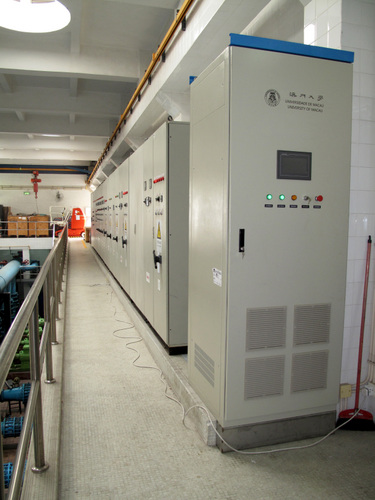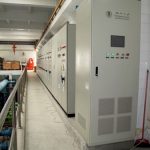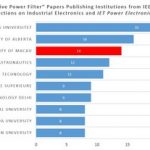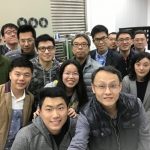 UM has installed the first capacitive grid-connected hybrid power quality compensator at the Macau Water Supply Company
UM has installed the first capacitive grid-connected hybrid power quality compensator at the Macau Water Supply Company
The University of Macau’s (UM) studies on active power filter (APF) have obtained fruitful results. The university now ranks among the top in the world in terms of the number of APF-related papers published during the period between 2012 and 2017 in the three most authoritative journals in the field of power electronics, namely IEEE Transaction on Industrial Electronics, IEEE Transaction on Power Electronics, and IET Power Electronics (click here for relevant statistics from Scopus).
APF is an important device for improving power quality, and provides crucial support for the development of smart grid technologies, which are considered by many governments to be an effective way to reduce energy dependence and to mitigate the impact of global warming. The United States and China are actively promoting the development of smart grid technologies. According to the National Bureau of Statistics of China, the said market in China will amount to RMB 15 billion by the year 2020.
Since 2005, UM’s power electronics research team has been focusing on the development of hybrid power filters, a combination of passive power filters and active power filters, with the aim of reducing the cost of power filters and operating losses. Prof Wong Man Chung, head of UM’s Department of Electrical and Computer Engineering, says that the team successfully installed the first capacitive grid-connected hybrid power quality compensator at the Macau Water Supply Company in 2014. He adds that the compensator has been operating smoothly with an operating efficiency reaching 98.8 per cent when fully loaded, and is bringing substantial economic benefits to the company. According to Prof Wong, the compensator is characterised by its medium price range and high efficiency, and the design has been patented in China and the US. In addition, the research team has been participating in energy conservation projects at UM and will install the energy conservation devices developed in-house at UM to increase energy efficiency.
View gallery



